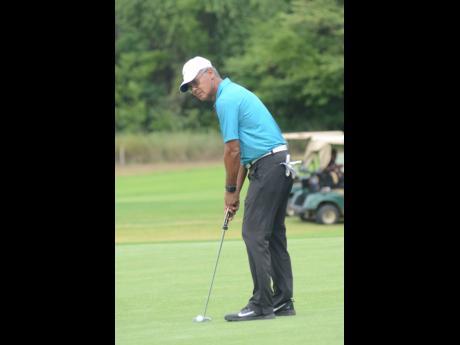Golfer, JGA plan schools clinic
Golfer Herman Marsh says he wants the Institute of Sports (INSPORTS) to create a programme in schools located in low-income areas to educate the students about the sport.
Marsh came up with the idea after directing an INSPORTS golf summer camp in August. He has held several golf developmental projects at the Jessie Ripoll and St Aloysius primary schools.
“We could go into the schools and teach the students, even for at least an hour,” he told The Gleaner. “Those with the potential, we will bring them out to the golf course, which would make a much easier transition.
“We have the golf equipment that we could use in the schools that wouldn’t damage the students, and it’s a special type of club that we call a snag.
“They are not privileged to the sport. It is not like football or cricket, where they can just go and put up a field and kick ball. In golf, you don’t get that much improvement in two years and we want to grow them in the system from as early as possible.”
Jamaica Golf Association (JGA) President Peter Chin said the golf academy was designed to instruct youngsters from the different schools on the various elements of the sport.
NO FUNDS
However, the JGA did not have the funds to sustain the programme.
“We have been talking to G.C. Foster College about introducing a programme to their curriculum, so the physical education teachers can teach them,” Chin said. “It’s for us to have a sustainable programme and coaching; because any sport at all without coaching cannot progress, and that is what we’re trying to do.
“In England, when golf was on the down trend, they went into the schools and they got cricketers, more specifically batsmen, and hockey players because it’s the same basics for each sport, and those people were converted to playing golf.”
Chin says, however, that overall caddies, and some of what he describes as the best golfers Jamaica has produced throughout the years, came from low-income communities.
Athena Clarke

